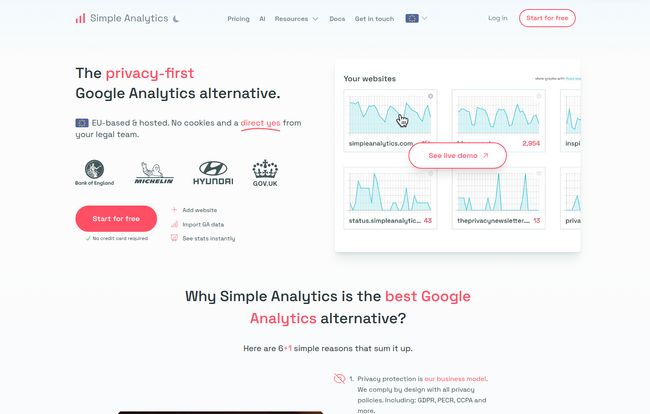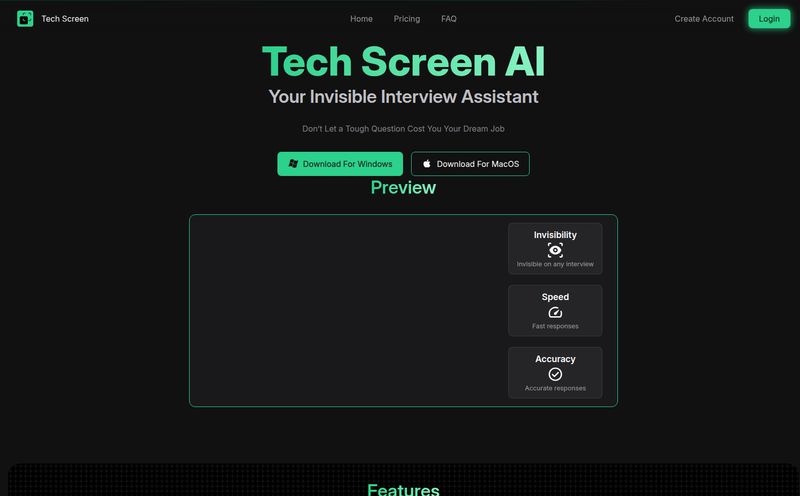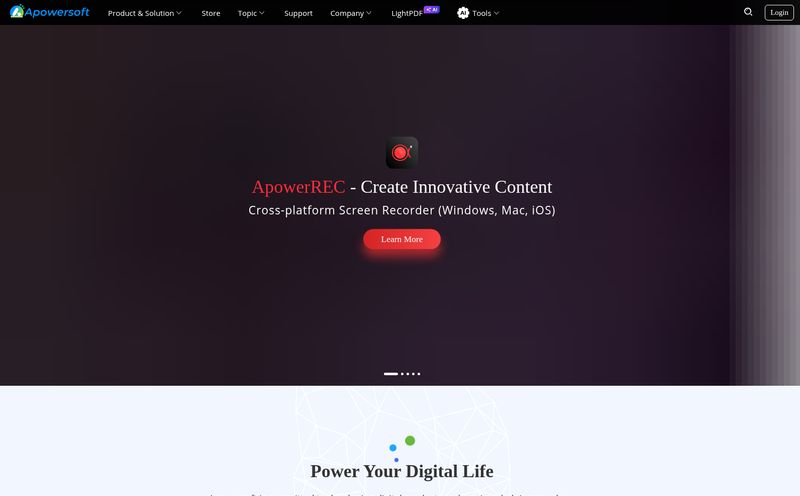For years, my relationship with Google Analytics has been… complicated. It's the tool we all grew up with in the SEO world. It was free, it was powerful, and it gave us more data than we knew what to do with. But lately, things have felt different. The switch to GA4 felt like trying to learn a new language overnight, the interface is clunky, and the constant, nagging feeling about user privacy has become impossible to ignore.
Every time I have to plaster another one of those annoying cookie consent banners on a new site, a little piece of my soul shrivels up. We're all so tired of them. You, me, your grandma. It's a dance of legal compliance that just gets in the way of a good user experience. So, I’ve been on the lookout for a while now, searching for an alternative that respects visitors and doesn't require a data science degree to operate. And I think I’ve found a serious contender in Simple Analytics.
It’s a name that says it all, really. And in a world of ever-increasing complexity, simple sounds pretty darn good.
What Exactly is Simple Analytics?
Think of Simple Analytics not as “Google Analytics Lite,” but as a complete philosophical rethink of what website analytics should be. Its entire foundation is built on a radical idea: you can get the website insights you need without tracking people. No cookies, no collecting personal data, no creepy digital fingerprinting. It’s 100% GDPR, CCPA, and PECR compliant right out of the box.
The best analogy I can come up with is this: It’s like being a shop owner who wants to know how many people visit their store each day, which door they used to enter, and which products they looked at the most. Simple Analytics is the friendly employee at the door with a simple clicker counter. Google Analytics, on the other hand, is the overzealous security guard who takes a photo of every customer, follows them around the store, jots down what they're wearing, and tries to guess their home address. See the difference?

Visit Simple Analytics
It focuses on the basics that actually move the needle for most of us: page views, referrers, top pages, geographic location (at a country/city level, not a personal one), screen sizes, and browser types. It gives you the trend, not the individual's life story.
Why I'm Intrigued: The Features That Matter
I get excited about tools that solve real problems, not ones that create new ones. Here’s what stood out to me about Simple Analytics.
A Dashboard That Doesn't Require a PhD
My first thought opening the dashboard was, “Oh, thank goodness.” It’s clean. It’s intuitive. The most important metrics are right there in front of you. There’s no digging through ten layers of menus to find out which blog post is performing well this week. It’s a stark contrast to the GA4 interface, which sometimes feels like staring at the cockpit of a Boeing 747 and being told to “just fly it.” With Simple Analytics, you get the vital info without the noise, which, for most business owners and bloggers, is exactly what we need.
The Privacy-First Promise (And Why It’s a Big Deal)
This is the headline feature, and for good reason. Not having to worry about GDPR compliance for your analytics is a massive weight off your shoulders. The fact that all data is hosted on EU-based servers owned by European companies adds another layer of confidence. In an age where data sovereignty is a growing concern, this is a subtle but incredibly important detail. You're not just telling your visitors you respect their privacy; your tool stack actually proves it. This builds a level of trust that a cookie banner never could.
AI Insights Without the Creep Factor
Okay, so “AI” is a term that gets thrown around a lot. Here, it’s not about building a profile on “Visitor X.” Instead, the AI helps detect patterns and trends in your anonymous data. It can spot anomalies, identify trending pages, and help you understand your traffic flow without ever crossing that creepy line. It’s less “I know what you did last summer” and more “Hey, it looks like people from Twitter really love this article.” Which, frankly, is far more useful.
Lightweight Script: A Gift for Your PageSpeed Score
Alright, my fellow SEOs, this one’s for us. We all know the pain of running a PageSpeed Insights report and seeing our scores tanked by heavy, render-blocking scripts. Google Analytics is a known offender. The Simple Analytics script is tiny—like, a few kilobytes tiny. This means it loads lightning fast and has a negligible impact on your Core Web Vitals. A faster site means a better user experience and, as we know, Google tends to reward that. So you’re getting your analytics and a potential small SEO boost. What’s not to love?
But Is It Too Simple? A Reality Check
Look, no tool is perfect for everyone. While I’m singing its praises, it’s fair to ask if Simple Analytics is too simple for some. If you're a massive e-commerce corporation with a dedicated team of data analysts running complex multi-touch attribution models and A/B testing every pixel on your site… then yeah, you might miss some of the granular, user-specific tracking that GA provides. You won't be building intricate remarketing audiences directly from your analytics here.
But for the other 95% of us? For bloggers, SaaS companies, small businesses, and agencies who just want to know what's working without violating user trust? I think it hits the sweet spot. It’s a classic case of choosing the right tool for the job. You wouldn't use a sledgehammer to hang a picture frame, would you?
Let’s Talk Money: Simple Analytics Pricing
This is where the rubber meets the road. Unlike Google Analytics, Simple Analytics isn’t free (mostly). It's a premium product, and honestly, that’s reassuring. It means their business model is selling great software, not selling your visitors' data. They offer a few different tiers, which I've broken down here.
| Plan | Price | Best For | Key Features |
|---|---|---|---|
| Free | Free | Hobbyists & Small Projects | 1 user, 5 sites, 1-month history |
| Simple | $15 / month | Business Owners & Bloggers | 10 sites, 3-year retention, Goals, Trends |
| Team | $40 / month | Collaborative Teams | Everything in Simple + more users/sites, API access |
| Enterprise | From $750 / month | Large Organizations | Custom limits, priority support, SLA |
The free plan is a great way to test the waters, but the 1-month data history is a bit limiting for serious use. The Simple plan at $15/month is the real sweet spot. Is it worth it? In my opinion, absolutely. The time and mental energy you save on GDPR compliance alone probably pays for it. Plus, you're supporting a more ethical web.
My Personal Take: The Good, The Bad, and The Refreshing
Using Simple Analytics feels less like spying and more like listening. It’s a fundamental shift in mindset that I think our industry desperately needs.
The good is obvious: the simplicity, the speed, the peace of mind. It just works, and it lets you get on with your day. The bad? Well, it's not a con so much as a trade-off. You are giving up some of the hyper-granular data GA offers, and it's not a free service for serious use. But the refreshing part is the ethics. It feels genuinely good to use a tool that aligns with a pro-privacy stance. It’s one small step away from the surveillance capitalism model that has come to dominate the internet.
Frequently Asked Questions About Simple Analytics
- Is Simple Analytics really 100% GDPR compliant?
- Yes. It was designed from the ground up for GDPR compliance. It doesn't use cookies, doesn't collect any personally identifiable information (PII), and hosts data on European-owned servers in the EU. You don't even need a cookie banner for it.
- What kind of data does it actually collect?
- It collects anonymous, aggregated data. Things like which pages are visited, the website that referred the visitor (like Twitter or Google), the visitor's country, and the type of device/browser used. It never collects an IP address or creates a user profile.
- Can I still track goals or conversions?
- You can! They have a feature for tracking events, which you can use for goals like button clicks, form submissions, or sign-ups. The key difference is that these events are tracked anonymously; they aren't tied to an individual user's session history.
- Is the free plan good enough to start with?
- It’s perfect for trying it out on a personal blog or hobby project to see if you like the interface. However, the 1-month data retention limit means you won't be able to track long-term trends, so most businesses will want to upgrade to a paid plan fairly quickly.
- How hard is it to switch from Google Analytics?
- It's incredibly easy. You just sign up, get a small snippet of code, and add it to your website's header. It's literally a copy-paste job that takes about two minutes. You can even run it alongside Google Analytics for a while if you want to compare the data.
A Simpler, More Ethical Path Forward
Breaking up is hard to do, especially with a tool as ingrained as Google Analytics. But Simple Analytics presents a compelling reason to finally make the switch. It’s not just a replacement; it’s an upgrade in philosophy. It’s a vote for a faster, more private, and less annoying internet.
For me, the combination of performance, simplicity, and ethical peace of mind is a winning one. It lets me focus on creating great content and growing my business, not on navigating a labyrinth of privacy regulations. And that, in itself, is anything but simple—it’s brilliant.



